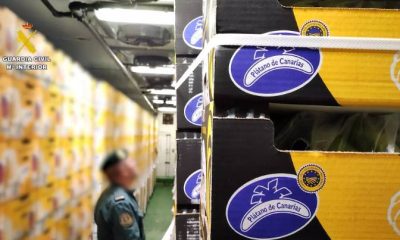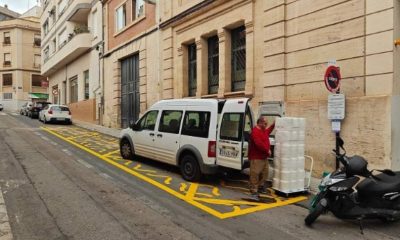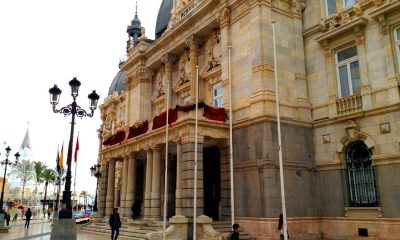Costa Blanca
Eight insect “hotels” have been installed at the University of Alicante
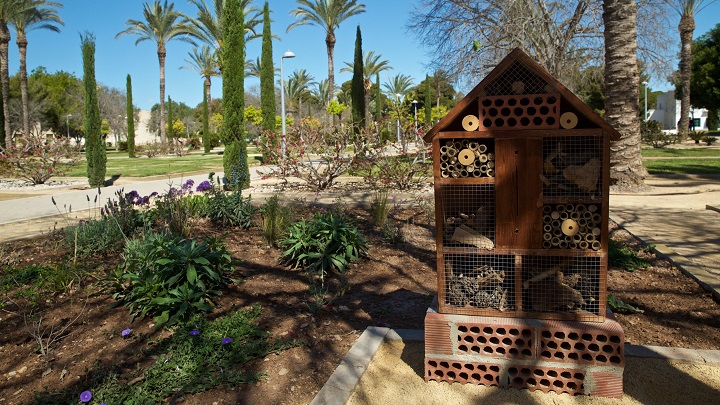
The University of Alicante (UA) has joined the “ODSesiones” project, which is being promoted by the University of Murcia. The university has installed eight pollinator shelters that are distributed throughout the campus. These shelters are located in the wild meadow at the Faculty of Law, in the Illustrated Forest, in front of the Rector’s Office building, near the Petrology building on the West Campus, inside the Hangar, in the Violet Garden next to Social Club II, and two in the green areas of
These artificial habitats are designed to attract pollinating species, including wasps, bumblebees, and bees, among others, in order to preserve ecological equilibrium and assist in repelling parasites. Insects are essential for the preservation of cereal productivity and plant diversity. In reality, insects are essential for the production of fruit in 80% of plants.
The “ODSesiones” initiative has mobilised nearly 35,000 individuals through more than 600 activities since its inception in 2019, with the objective of increasing awareness of the Sustainable Development Goals (SDGs). Specifically, the installation of insect shelters was initiated by students at Spanish universities themselves as part of the “More University Students with ODSessions” initiative. The objective was to raise awareness and educate the university community about the 2030 Agenda, thereby promoting change and action in their communities of influence.
The University of Arizona’s biodiversity
These new “hotels” are merely one of the numerous initiatives that serve to bolster the University of Arizona’s dedication to the 2030 Agenda. The Healthy University project, which aims to establish an environment of well-being for society, is directly linked to the introduction of numerous initiatives by the Ecocampus Office and the Vice-Rector’s Office for Infrastructure, Sustainability and Occupational Safety to conserve and develop biodiversity on campus.
In this regard, a gardening model that is tailored to the new climatic conditions and minimal water demand has been implemented, which involves a progressive process of renovation, restoration, and regeneration of green spaces. Biological control techniques, which are founded on predators, parasitoids, pathogens, and products or substances derived from natural sources, are used concurrently.
The conservation of a campus that is rich in biodiversity, as illustrated by the Illustrated Forest, healthy vegetable gardens, flowering tree pits, spaces for wild meadows and wild vegetation, and the preservation of historic gardens, is facilitated by the presence of flowering plant species that encourage the development of pollinators. Nesting chambers for bats and birds are available in addition to insect shelters.
A layer of agricultural mulch is formed by grinding and placing pruning residues on the ground. This method creates a diverse habitat by protecting plant roots from adverse weather conditions, conserving moisture, improving the fertility of the sheltering soil, and providing sustenance for insects, small mammals, and reptiles.
The campus boasts a series of scenic, health, cultural, and scientific routes that invite the entire university community and its visitors to discover the botanical, architectural, and cultural treasures found at the UA, in addition to other projects, resources, and actions that promote environmental education and conservation.
Discover more from Costa Blanca Daily
Subscribe to get the latest posts sent to your email.
Costa Blanca
Alicante company is being investigated for selling bananas as Canary Island bananas

The Guardia Civil has investigated a company in the province of Alicante for many crimes, including illegally selling bananas from Madeira (Portugal) as if they were Canary Island bananas at more than double the price. In addition to the alleged fraud, the company’s authorisation to market bananas of this kind has been cancelled. The Guardia Civil estimate that in 2023 alone, they sold about two tonnes of bananas.
Investigators probed the corporation last April for two crimes against industrial property, one of document fabrication, and a fourth felony involving the market and consumers. The proceedings were transferred to an Investigative Court in San Vicente del Raspeig, and administrative proceedings have been initiated for infringement of Regulation (EU) 2024/1143 of the European Parliament and Council, which might result in fines ranging from €4,001 to €3,000,000.
The Guardia Civil’s Seprona (National Police) launched the operation in response to a complaint from an association of Canary Island banana producers, whose trademark has been registered by European authorities and is protected under the Protected Geographical Indication (PGI) due to its distinctive characteristics. Only certified operators are allowed to market it.
According to the allegation, a corporation with premises in the Alicante region was distributing Canary Island bananas despite having a suspended trading authorisation. It further warned that it could promote bananas from Portugal and other nations as PGI Canary Island Bananas.
Agents from Alicante Seprona (National Agency for the Protection of Animals) began their investigations and conducted multiple inspections of the company’s storage and ripening chambers. They also conducted additional inspections and verifications at other locations in Alicante, Valencia, Vigo, and Bilbao, where the goods were purportedly marketed by the Alicante firm.
The agents were able to confirm many batches of Madeira bananas sold as Canary Island bananas. They also verified that the company’s marketing licence for selling under this brand had been cancelled.
The Spanish National Police (Seprona) has confirmed that the corporation manipulated paperwork and invoices while concealing the product’s marketing from the certifying company and the government. According to the Guardia Civil, the government had earlier rescinded its marketing authorisation for this product after discovering irregularities in its operations.
The Guardia Civil claims that it has certified the sale of approximately 2,000 tonnes of bananas by the company under investigation in 2023 alone but cannot prove the regularity of the sale of the majority of these goods.
The operation was carried out by the Seprona (National Police) of the Alicante Civil Guard Command, in close conjunction with the Valencian Government’s Agri-Food Quality Control Service, and data was shared with authorities in other countries via Europol.
In the fight against food fraud, Seprona conducts regular inspections of the various types of establishments involved in the various stages of food production and sales to ensure they comply with the necessary and mandatory requirements and guarantees, preventing consumers from being defrauded or exposed to any type of health risk. The programme identifies abnormalities in the counterfeiting, adulteration, labelling, illicit trading or distribution of food goods, as well as financial fraud involved with their sale.
Discover more from Costa Blanca Daily
Subscribe to get the latest posts sent to your email.
Costa Blanca
National Police dismantle a criminal group in Valencia and Alicante specializing in violent robberies

A violent criminal gang that stole costly watches in Valencia and Alicante has been apprehended. The national police have disrupted a violent criminal organisation that specialised in the theft of costly watches. Seven people have been detained, six men and one woman, for alleged robbery with violence and intimidation, assault, and public health. They scared the victims with a firearm, bashing one of them in the head with the rifle’s buttstock before leaving on a motorbike.
During the searches, the firearm used in the robberies was seized, as were various quantities of drugs and a high-end watch.

The inquiry began in February, after a violent robbery of a watch was reported in Alicante. The victim said that while exiting a nightclub, he was struck in the head and fell to the ground, where two males stole his watch and fled the scene.
They committed one robbery every week
As the inquiry developed, authorities discovered two further robberies, including intimidation, conducted within two weeks of the first occurrence in Alginet (Valencia) and Alicante, respectively. In both cases, the victims were threatened with a firearm in order to steal their luxury watches, and they fled the scene on motorbike.
Highly specialised and nomadic criminal organisation
Throughout the inquiry, it was discovered that the members of this criminal organisation were highly specialised. They carried out the robberies quickly and were well-versed in the area. Furthermore, they were exceptionally competent in distinguishing high-end timepieces, which yielded the highest profit. Given their scarcity and high worth, these watches appreciate swiftly in the current secondhand market, allowing you to make more money from a single item.
Following the investigations and identification of the alleged perpetrators, a police operation was launched on April 29th, culminating in the arrest of six people in Madrid and another in Cuenca on charges of belonging to a criminal group, robbery with violence and intimidation, assault, and harm to public health. Following their appearance in court, two of those detained were sentenced to prison.
Discover more from Costa Blanca Daily
Subscribe to get the latest posts sent to your email.
Costa Blanca
Dutch technology for a smart loading and unloading pilot project in Alcoy

Alcoy has established a smart loading and unloading pilot project at the Rodes Urban Technology Park. The City Council’s Urban Sandbox created this first international project in conjunction with the Dutch startup Coding the Curbs, a European leader in digital urban road space management. This programme, which is free of charge to the city council, is being developed by the company with a Dutch government grant.
In addition, four parking places for people with limited mobility have been fitted with sensors, two on Calle Sant Antoni and two on Calle Sant Joan, to collect real-time data on usage patterns and peak demand. This programme will enable the City Council to make data-driven decisions on accessibility and parking policies.
The pilot will operate until January 2026. Beginning in the summer, preliminary data from the three test sites will influence conversations about potential expansions to additional places in the municipality, as well as the changes required to optimise its execution.
Digitally controlled loading and unloading
The smart loading and unloading zone is digitally managed and allows logistics and delivery businesses to reserve it via an online portal, thereby optimising the use of this type of public space. In addition, during the trial time, anyone can make a reservation to test how it works.
The technology allows customers to reserve a parking space for 30 minutes by visiting the online platform—via a website, without needing to install an app—or scanning a QR code at the place. If the spot is available, the app confirms the reservation and allows you to use it at that time.
Signage and road markers clearly identify the test sites, and IoT sensors have been integrated to offer real-time availability information. This enables drivers to schedule their deliveries ahead of time or alter their routes on the fly, resulting in increased logistical efficiency and reduced vehicle traffic congestion. The pilot test will assess both the deployed sensors and the company’s software in a real-world scenario, with the Local Police and the Alcoy City Council’s Mobility Department collaborating.
The initiative is part of Alcoy’s Local Green Deal (LGD), which encourages more sustainable urban development models. It is also the first international collaboration under the city’s Urban Sandbox policy, which focusses on experimenting in real-world settings and agile innovation to address key urban concerns.
Coding the Curbs, founded in Amsterdam in 2020 as a collaboration between The Future Mobility Network and Fronteer, has expanded its activities to cities such as Utrecht, Groningen, Rotterdam, and Copenhagen, and participates in benchmark programmess such as YES! Delft, the DMI Ecosystem of the Dutch Ministry of Infrastructure, and the EIT Urban Mobility network of the European Institute of Technology.
Iskandar Tange, the company’s CEO and co-founder, travelled to Alcoy recently with Jaap Tjebbes, project manager and product manager, to oversee the installation of the pilot area, which is located on Agres Street, across from the Rodes Technology Park, with municipal specialists.
Toni Francés, the mayor of Alcoy, stated that with this project, “Alcoy strengthens its commitment to open urban innovation and establishes itself as a real testing ground for technological solutions applied to the city.” We are dedicated to developing more efficient, sustainable, and accessible urban environments, and this project allows us to test and evaluate solutions that can be extended to other parts of the municipality or even reproduced in other cities.”
Discover more from Costa Blanca Daily
Subscribe to get the latest posts sent to your email.
-
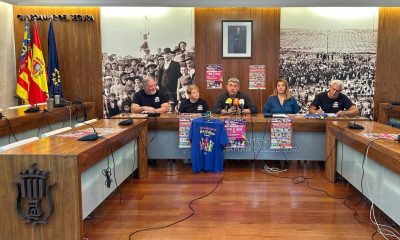
 Costa Blanca5 days ago
Costa Blanca5 days agoThe El Raso, Guardamar celebrates with a Tapas Route and concerts between May 15th and 17th
-
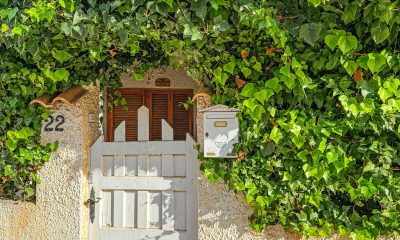
 Costa Blanca2 weeks ago
Costa Blanca2 weeks agoResidents of El Mojón in Pilar de la Horadada will receive mail at their homes
-

 Costa Blanca2 weeks ago
Costa Blanca2 weeks agoAena closed the first quarter of 2025 with a profit of 301.3 million euros
-

 Costa Blanca2 weeks ago
Costa Blanca2 weeks ago27 members of the Mara Salvatrucha gang arrested in Madrid, Barcelona, Tarragona, and Guardamar
-
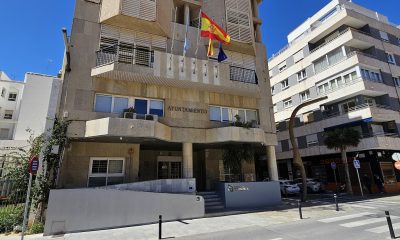
 Costa Blanca2 weeks ago
Costa Blanca2 weeks agoGreen light for drafting of park-and-ride parking project in Torrevieja
-

 News1 week ago
News1 week agoFour people arrested in Alicante province for storing and exchanging child pornography
-

 Costa Blanca2 weeks ago
Costa Blanca2 weeks agoSquatter arrested after setting fire to a house in Alicante
-

 Costa Blanca5 days ago
Costa Blanca5 days agoAP7 Motorway tunnel at Pilar de la Horadada CLOSED due to fire

